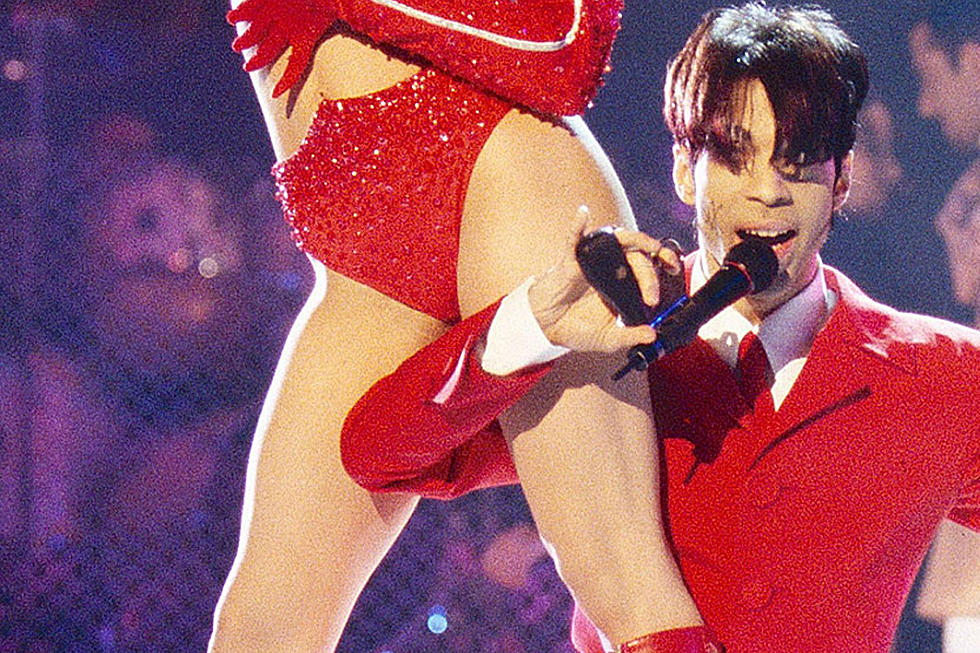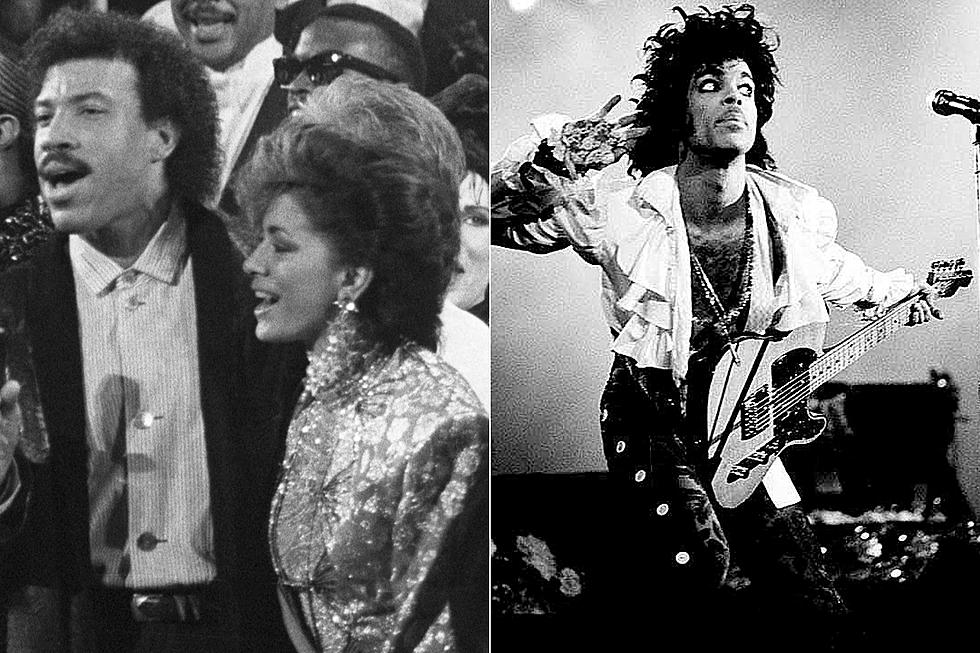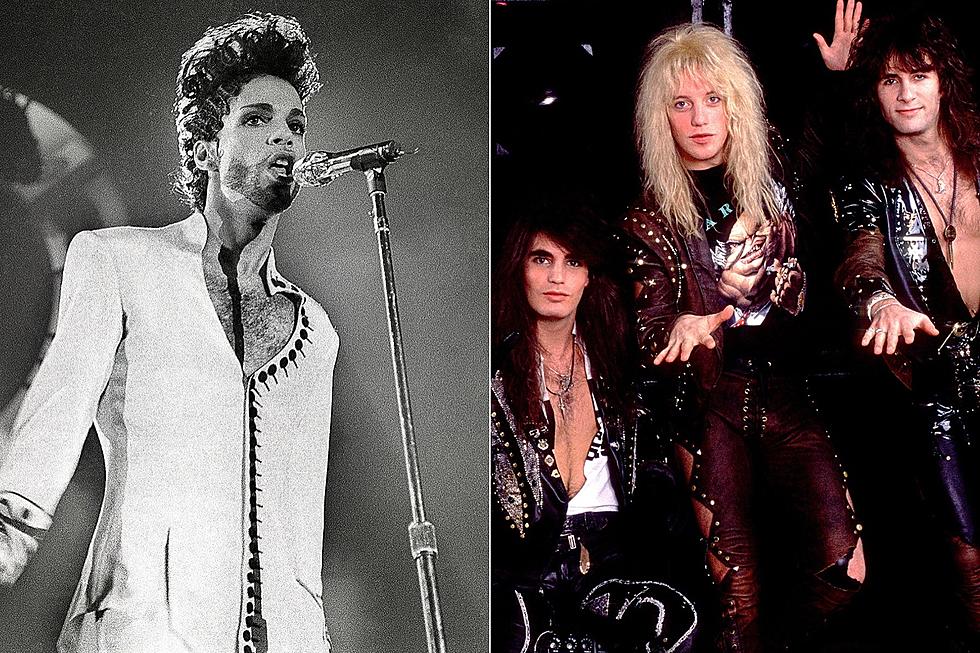
Prince’s ‘P. Control’ Makes a Unique Case for Female Empowerment
Let’s make one thing clear right from the start. Prince's “P. Control” isn’t a song about spaying or neutering your cats. The lead track on 1995’s The Gold Experience LP, “P. Control” (which because of its chorus is often referred to as "P---- Control" ) is actually an amusing yet effective anthem for female empowerment. It’s also one of Prince’s most impressive forays into hip-hop and stands as a sharp counterpoint to a lot of the misogynist gangsta rap that was clogging radio airwaves at the time.
Watch Prince Perform "P. Control"
Of course, using such a taboo word in the chorus -- more specifically, one that is so frequently used in a derogatory manner when speaking about women -- led many to assume Prince was at least temporarily taking the wrong side in the battle for gender equality.
But he made his stance clear in the introduction to the house mix of the song:
This is a tale about control
Feline, that is
But please don't be a victim of the 30 second bite
Listen 2 the words carefully
They are meant 2 uplift and enlighten
All the members of the female persuasion
So that no woman ever becomes a slave
Yeah!
For Prince, those words weren't merely lip service; the notion of, and dedication to, female empowerment was present right from the start of his career. At a time when women musicians were hired primarily as backup vocalists, he regularly had women playing instruments in his groups. His first touring band contained keyboardist Gayle Chapman. Later, guitarist Wendy Melvoin and keyboardist Lisa Coleman became both his most valued collaborators and the most visible members of the Revolution. Around that same time, Prince helped make percussionist Sheila E a solo star. And during his most fruitful recording years, his albums were engineered by Susan Rogers.
As Wendy and Lisa, who were also a couple while they were in Prince's employ, told Out in 2009, his decision to have women in the band was "very calculated" and rooted in the "Sly and the Family Stone mentality." Having them play up their sexual orientation -- just enough to be provocative but not so much that it was blatant -- was, in Lisa's words, "validating."
"I felt slightly protected by it, which is really ironic," Wendy added. "There was so much mystery around him and he never had to answer to anybody or anything and I was so young and dumb that I thought I could adopt that philosophy."
Over the next 25 years, women like Rhonda Smith, Rosie Gaines, Candy Dulfer and Andy Allo performed and recorded with him. His final band, 3rdeyegirl, consisted entirely of three women, guitarist Donna Grantis, bassist Ida Kristine Nielsen and drummer Hannah Welton. After his death, Jezebel published a lengthy article chronicling his personal and professional relationships with women musicians.
Given Prince's proficiency on numerous instruments and exacting standards, the women were chosen as much for their talent as for their image. Welton found her time with Prince to be a welcome change from the traditional misogyny in the music industry. “We’ve been inspired by his style and him telling us how he wants people to see us," she told the Guardian. "There’s a way to be portrayed as beautiful, and even sassy and sophisticated, yet still powerful. None of us will ever compromise our look and feel as if we have to go out there wearing next to nothing to be noticed. That’s what the industry has become these days and the music is suffering; people are over-compensating for their music not being very good. ... [W]omen first have to stand up for themselves and stop degrading themselves, stop compromising. We talk about these things with Prince a lot.”
“P. Control” follows the life of the uniquely named title character, starting with her beatdown at the hands of several school friends over a hoodie. The maturing character tells her bullies off, brushes the dirt off of her shoulder, and keeps moving towards a master’s degree and a successful career. As the story unfolds, P----’s take-no-crap attitude extends to some fairly relentless suitors and ultimately leads to an encounter with “Your Captain With No Name," as he refers to himself in the song’s first verse. While the pickup game is certainly laid on thick in “P. Control”’s last 16 bars, The Artist makes it clear that he is pitching woo with the utmost respect.
While never released as a single, “P. Control” is one of The Gold Experience’s best known tracks. Prince managed to edit the song creatively enough to perform it on VH-1’s Fashion & Music Awards in 1995. Joined by the New Power Generation and Mayte Garcia (who would become Prince’s wife less than a year after the show aired), the energetic performance features crowd surfing, a mock-fight between Prince and keyboardist Tommy Barbarella, and a cast of dancers acting out the song’s lyrics.
Prince’s impending religious conversion meant that “P. Control” wasn’t performed much in concert (it didn’t make an appearance in a Prince set after 1996), but the artist liked the song enough to inclue a remixed version on his 1998 rarities collection Crystal Ball.
While Prince’s early aversion to rap is pretty well documented (check out The Black Album’s “Dead on It” for proof), “P. Control” found Prince comfortable enough to deliver a hip-hop song that doesn’t sound the least bit forced or unconvincing. It’s a highlight of his ‘90s catalog, powerfully rebuking misogyny and tipping a hat to strong women everywhere.
By Mike Joseph, David Lifton and Matthew Wilkening
More From Ultimate Prince










